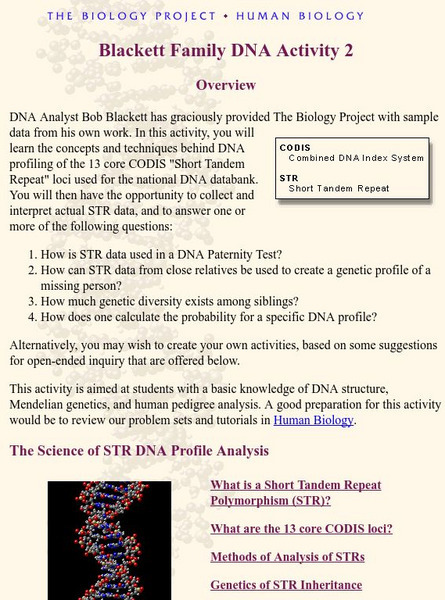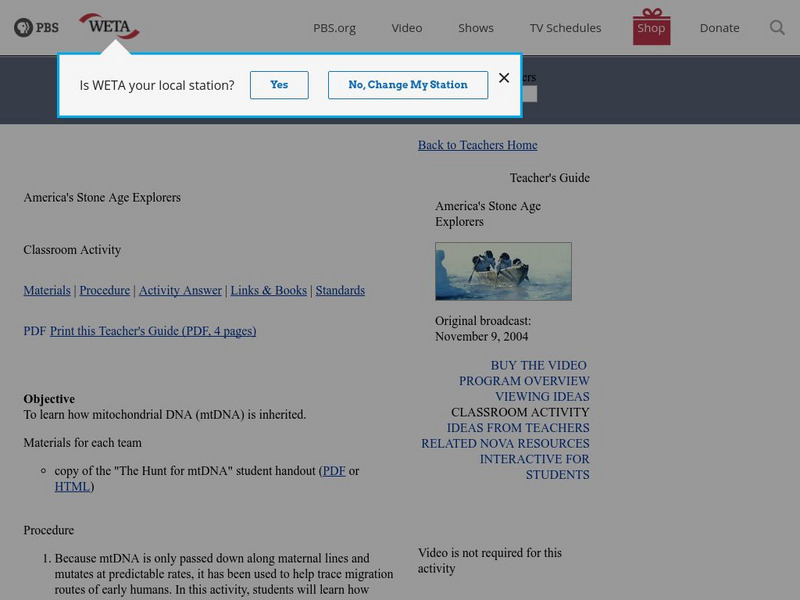Hi, what do you want to do?
Howard Hughes Medical Institute
DNA Profiling Activity
Everyone loves a good mystery ... can your class actually solve one? Partnered pupils take on the role of forensic investigators during a three-part activity focusing on DNA evidence processing. Learners discover the methods used to...
Center for Technology in Teaching and Learning
CSI: The Experience - Family Forensics
Forensic scientists depend on their observation skills to analyze evidence down to the molecular level. Middle and high schoolers practice making observations and predictions with a series of crime scene activities, which includes a...
CSI Crime Lab: Classroom Edition
Participants use their observation skills, communication skills, and reasoning skills to perform forensic tests and solve a crime. This series of activities provides a first-hand (but scaled-down) introduction to careers in Forensic...
Frederick Moleski, Ph.D.
Blood Spatter: Bloodstain Analysis Experiments
It may be gruesome but somebody's got to do it! Young forensic scientists get a feel for what the job entails as they study blood spatter in seven experimental activites. They examine how spatter can be changed by release height,...
PBS
Conceptualizing an Experiment
Students analyze information from a variety of sources in order to create a hypothesis about the origin of an interesting family artifact. They create alternative hypotheses based upon available information in order to understand that...
University of Arizona
The Biology Project: Human Biology: Blackett Family Dna Activity
Family studies are a good way to learn about DNA profiling and RFLP analysis because students can follow the inheritance of DNA markers from one generation to the next. Students have the opportunity to do this in this activity.
University of Arizona
The Biology Project: Human Biology: Blackett Family Dna Activity 2
In this activity, students learn the concepts and techniques behind DNA profiling of the national DNA databank. Students will then have the opportunity to collect and interpret actual STR data, and to answer one or more questions.
PBS
Pbs Teachers: Wanted Butch and Sundance: Classroom Activity
Examine how forensic anthropologists use data to investigate skeletal remains and use a data chart to estimate how tall a person might have been from the length of his or her bones.
National Health Museum
Access Excellence: Dna Detectives
A hands-on activity from Access Excellence for advanced biology classes. Students are given a crime scenario and three suspects. Their mission is to determine 'Who Dunnit?' by obtaining and analyzing DNA samples. Requires extensive...
Texas Instruments
Texas Instruments: Are Your Bones Normal?
Students can use the TI-Navigator to investigate mathematics in Forensic Science.
PBS
Pbs Teachers:america's Stone Age Explorers
Discover how mitochondrial DNA (mtDNA) is inherited, and complete a pedigree chart by determining which individuals might share mtDNA with an unknown ancestor.















